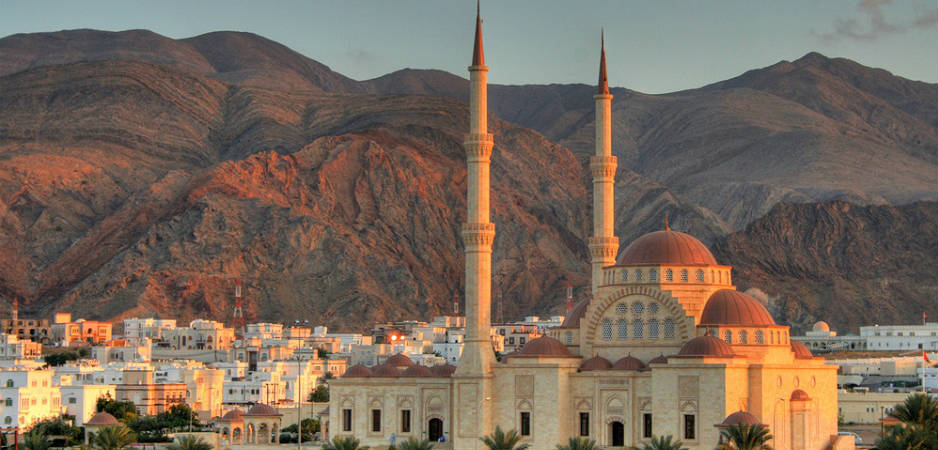Unemployment, inequality and segregated ghettos create powerful breeding grounds for radicalism.
Three developments were of particular importance in February. First, turmoil continued in the Middle East and Africa. Second, fighting in Ukraine ended in a ceasefire. Third, corruption took center stage in Britain and Latin America.
In the Middle East and Africa, Islamism is challenging existing power structures. Both the Islamic State (IS) and Boko Haram have launched spectacular attacks and committed brutal atrocities. Arbitrary colonial states with centralized bureaucracies have long failed their people. Patronage has long been dispensed in national capitals on ethnic or personal grounds. During the Cold War, marginalized groups revolted on purportedly ideological grounds. Now, rebellion is explicitly based on ethnicity and justified by religion. Despite the combined efforts of many states and regular air strikes, IS and Boko Haram continue to thrive.
Disillusioned Muslims from Europe are heading to the Middle East to join IS. “Jihadi John” is British and three teenage girls left London to join people like him. In a continent where racism has long been rife, unemployment, inequality and segregated ghettos create powerful breeding grounds for radicalism. For instance, French banlieues and British council estates are plagued by deprivation. Crime and drug abuse is rife in deracinated communities where traditional social structures have broken down. Charismatic clerics with a call tempt youngsters to fight for justice, righteousness and God.
In Ukraine, fighting has ceased. Europe and the United States who wanted self-determination for Ukraine found themselves in a bind when Russians in the eastern part of the country claimed the same right. The presence of xenophobes in Kiev and Russian fears of encirclement swelled the ranks of rebels. Russian President Vladimir Putin is a former KGB officer and he shrewdly supported the rebels. Ukrainian troops were weighed, measured and found wanting.
More importantly, the US is too busy shifting its focus to Asia. It is also war weary after Afghanistan and Iraq. Aging Europe is far too fond of la dolce vita and has no stomach for body bags. The crisis over Greece is threatening to derail Europe’s economy and even destroy the euro. The charismatic new finance minister of Greece has declared himself to be an “erratic Marxist” with little love for “repugnant European capitalism.” Indebted European nations are chafing under austerity while creditor nations like Germany insist that their rights are inviolable. Europe has no money to spare for Ukraine and does not want Ukrainian refugees. To quote the Bard of Avon, its “vaulting ambition, which o’erleaps itself” has fallen on the other side of the saddle. Therefore, Europe has made peace with Russia — at least for now.
In Britain, its banks are yet again in trouble. An economy dominated by the City of London is not yet free from peril. The Royal Bank of Scotland (RBS) has reported a loss of $5.8 billion for 2014. It is still majority-owned by taxpayers. In reality, this means the bank is still being bailed out by the common man. Standard Chartered is wobbling and has axed its old chief executive to import a new one who once worked for JP Morgan. The cream of the crop is HSBC, which has long been renowned for its prudence and sound financial management. Now, it has acquired a reputation for dodgy tax evasion.
Leaked documents have revealed that HSBC helped clients ferret away $120 billion in secret Swiss bank accounts. British Prime Minister David Cameron claimed he and his ministers only learnt about this when the matter came out in the papers. Reports suggest this is false. Cameron has long had a reputation for “mendaciousness” and once worked in the shadowy world of financial public relations. He was a touch too close to Rupert Murdoch’s disgraced lackeys involved in the News of the World scandal. Now, Cameron has been found in bed with HSBC bigwigs. Stephen Green, a former chairman of HSBC, was his trade minister, and Rona Fairhead, the former chair of HSBC’s audit committee, is the big boss of the BBC Trust.
While the whiff of scandal surrounds Cameron, Sir Malcolm Rifkind and Jack Straw, two former foreign secretaries, have been caught red-handed with their fingers in the cookie jar. Both have been caught in a media sting promising a fake Chinese firm that they could provide access to British ambassadors. Central offices of political parties have centralized power in Britain. This means that bigwigs have both temptation and opportunity to err. Public benefit is frequently sacrificed at the altar of private gain, and elites have become entrenched again in the class-divided land.
In Latin America, scandals weakened political leaders in Mexico, Brazil and Argentina. In Mexico, the president and one of his colleagues got mansions built by a construction company they had benefited. Mexicans have reacted with ferocious criticism. In Brazil, the Petrobas saga continues. Money from this national oil giant has apparently found its way to the ruling party’s coffers. Petrobas has been downgraded to junk. The Brazilian economy is taking a hit and President Dilma Rousseff will face an impeachment march on March 15. Finally, the matter is being investigated and that is terrific for a still-young democracy. The same cannot be said for Argentina.
The land of Diego Maradona and Lionel Messi has long been a case study for what can go wrong with an economy. Once, it was the tenth largest in the world. Today, it is dogged by scandal and in disarray. President Cristina Fernandez de Kirchner succeeded her husband to power, and all power is now concentrated in her hands. Her government has faced many scandals but has retained power through populist short-term subsidies. Investment in education and infrastructure has been neglected. Institutions, never strong in Argentina, have been further weakened. Finally, more than 400,000 people marched in pouring rain to protest against a thoroughly incompetent government and this might be the start of a long overdue Argentine renewal.
As always, we invite you to send us articles, videos, infographics, cartoons and more. Click here to become a contributor. Meanwhile, please find below our finest articles for February.
[seperator style=”style1″]1: A Love Letter to Young American Muslims[/seperator]
In a letter to American Muslims, Maria Khwaja Bazi reflects on rising Islamophobia and the murders of Deah, Yusor and Razan in Chapel Hill.
Dear MSA kids,
I was 17 on September 11, 2001. It was fall of my senior year of high school, and I was worried about a US History exam. I wore a scarf and performed the afternoon prayer in our school’s library.
They wheeled a TV with a live news broadcast into our room. I looked at the person next to me, a handsome Greek junior, for reassurance, but his eyes were on the screen, watching the Twin Towers fall over and over again. All I remember is Ms. Thompson, our history teacher, repeating, “Things will never be the same.”
They never were. The next day, in a local sandwich shop with my two (white) best friends, a lady threw a glass at me and screamed, “Go home, we don’t want you here!” I am home, I wanted to tell her, I am home. Read more
[seperator style=”style1″]2: Saudi Arabia and Oman Have Different Experiences With Extremism[/seperator]
Saudi Arabia and Oman possess differing national identities, varied social and cultural roots, and divergent approaches to tolerance that may explain their different experiences with extremism.
The Kingdom of Saudi Arabia and Sultanate of Oman share significant characteristics: language; basic religious heritage; geographic proximity; a remarkably rapid growth in economic development and prosperity; a dependence on oil and gas income; and elements of Bedouin and tribal culture.
However, there are significant differences. And it is those differences, when viewed in light of those foundational similarities, that may account for the two countries’ differing experiences with violent extremism.
The importance of these nations to and of their relationships with the United States and the West is well-known. Moreover, those relationships with the US are historic. With Saudi Arabia, these ties date back to just a few years after the founding of the modern state in 1932, while Oman’s began just a few decades after the founding of America. Read more
[seperator style=”style1″]3: In the Midst of a Revolution, The X Factor Meets The Apprentice[/seperator]
How do you tackle social and environmental problems and make money at the same time?
Tired of reality TV shows focusing on Kim Kardashian or some other pointless celebrity? Ever think reality TV could be a little deeper? Thankfully, you’re not alone. A groundbreaking, new “edutainment,” reality TV show that launched in late 2013 in Egypt has skillfully harnessed the power of mainstream media to ask some bigger questions of its audience, such as: How do you tackle social and environmental problems and make money at the same time?
Combining some of the best aspects of The X Factor, The Apprentice and Ashoka’s Changemakers, El Mashrou3 (The Project, in Arabic) is the first-ever reality TV show about business and social entrepreneurs in the Middle East.
Produced by Bamyan Media, a social enterprise that specializes in creating impact-oriented television shows for social change in the developing world, El Mashrou3 is an innovative and original formatted reality TV show that brings together 14 young contestants… Read more
[seperator style=”style1″]4: Sex: Stone Age Mind in a Modern-Day World?[/seperator]
To what extent is our sexual behavior determined by evolutionary psychology?
Everyone is familiar with the feeling of utter exasperation with the opposite sex. How common are phrases like “Women, I just don’t get them” or “It’s just another one of those ‘guy things.’” From our ability to park a car, find directions on a map, deal with a crisis situation or maintain a healthy relationship, we often feel that there is a gap between the sexes. The human race has been involved in building bridges across the tumultuous rapids of sexual differences for time immemorial.
Yet there is science behind these societal myths. Notions like free will, rational choice and basic physical attraction are influenced by the nature of our biology, going back to the earliest time of human development. Are men really more likely to cheat? Why is female sexuality more fluid? Can men and women really be friends?
In this interview, Anna Pivovarchuk talks to Professor Barry Kuhle, an evolutionary psychologist, about the science behind our sexual norms. Read more
[seperator style=”style1″]5: Those Who Never Came Home From Lebanon’s Civil War[/seperator]
Twenty-five years after the Lebanese Civil War, families of 17,000 missing people still have no information about the fate of their loved ones.
It was four months after the disappearance of Alexander Salloum in Beirut in August 1985. The telephone rang in the house where he used to live with his elderly father. Alexander’s father took the phone and heard his son’s voice saying, “Allo, papa, papa …,” then the connection went dead. Jeannine, Alexander’s younger sister, recalls that day and says that one year later her father died of grief over his missing son.
No one knows why Alexander’s car was stopped near the Green Line, which separated East from West Beirut during Lebanon’s civil war between 1975-90. There is no information about the affiliation of militias who abducted him and two of his colleagues.
After 30 years of searching for her missing sibling, Jeannine guesses that her brother was transferred to Syria and his kidnappers let him call his father because that was his last day in Lebanon. Read more
We bring you perspectives from around the world. Help us to inform and educate. Your donation is tax-deductible. Join over 400 people to become a donor or you could choose to be a sponsor.
The views expressed in this article are the author’s own and do not necessarily reflect Fair Observer’s editorial policy.
Photo Credit: David Burrows / Mykhaylo Palinchak / Shutterstock.com
Support Fair Observer
We rely on your support for our independence, diversity and quality.
For more than 10 years, Fair Observer has been free, fair and independent. No billionaire owns us, no advertisers control us. We are a reader-supported nonprofit. Unlike many other publications, we keep our content free for readers regardless of where they live or whether they can afford to pay. We have no paywalls and no ads.
In the post-truth era of fake news, echo chambers and filter bubbles, we publish a plurality of perspectives from around the world. Anyone can publish with us, but everyone goes through a rigorous editorial process. So, you get fact-checked, well-reasoned content instead of noise.
We publish 2,500+ voices from 90+ countries. We also conduct education and training programs
on subjects ranging from digital media and journalism to writing and critical thinking. This
doesn’t come cheap. Servers, editors, trainers and web developers cost
money.
Please consider supporting us on a regular basis as a recurring donor or a
sustaining member.
Will you support FO’s journalism?
We rely on your support for our independence, diversity and quality.













Comment